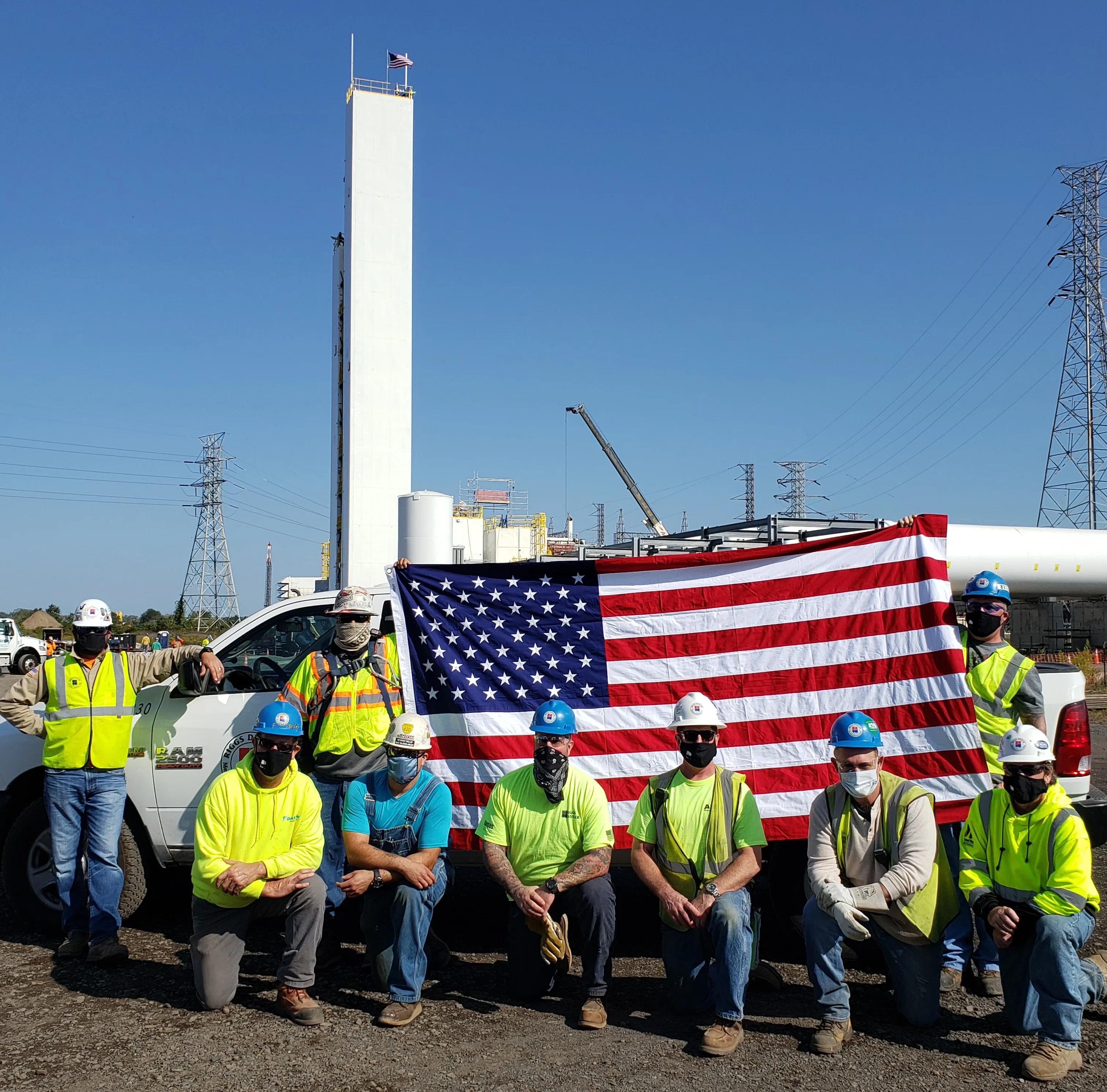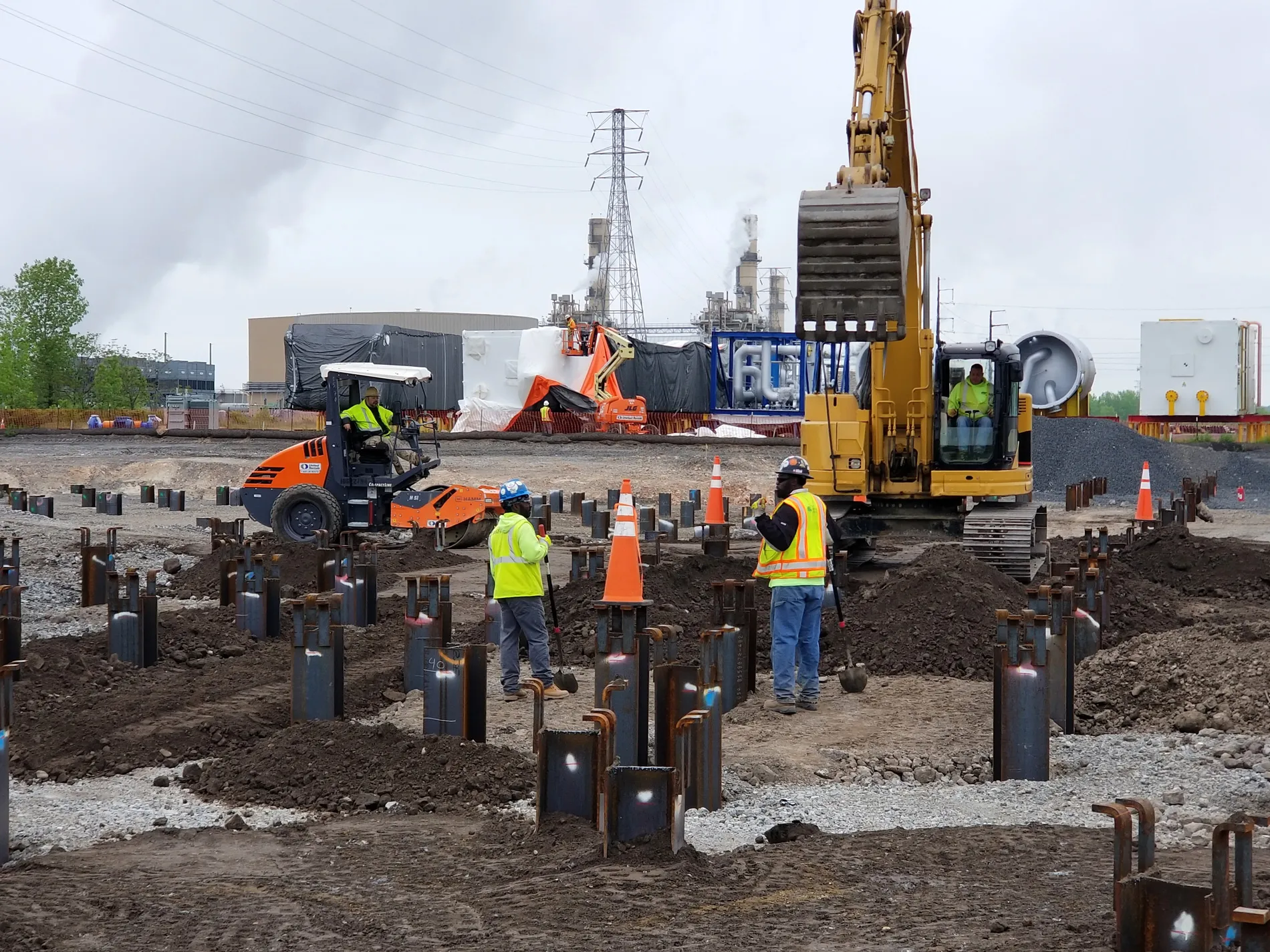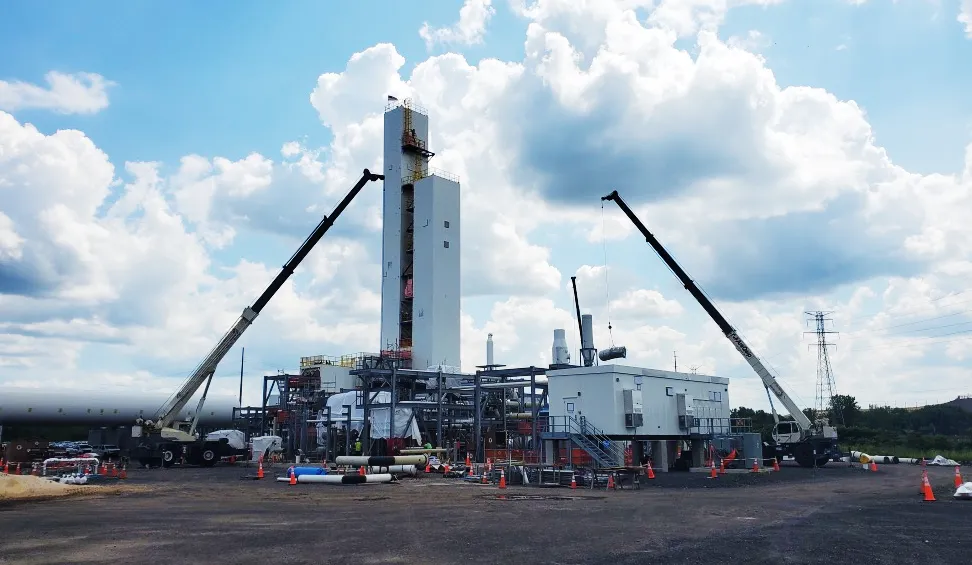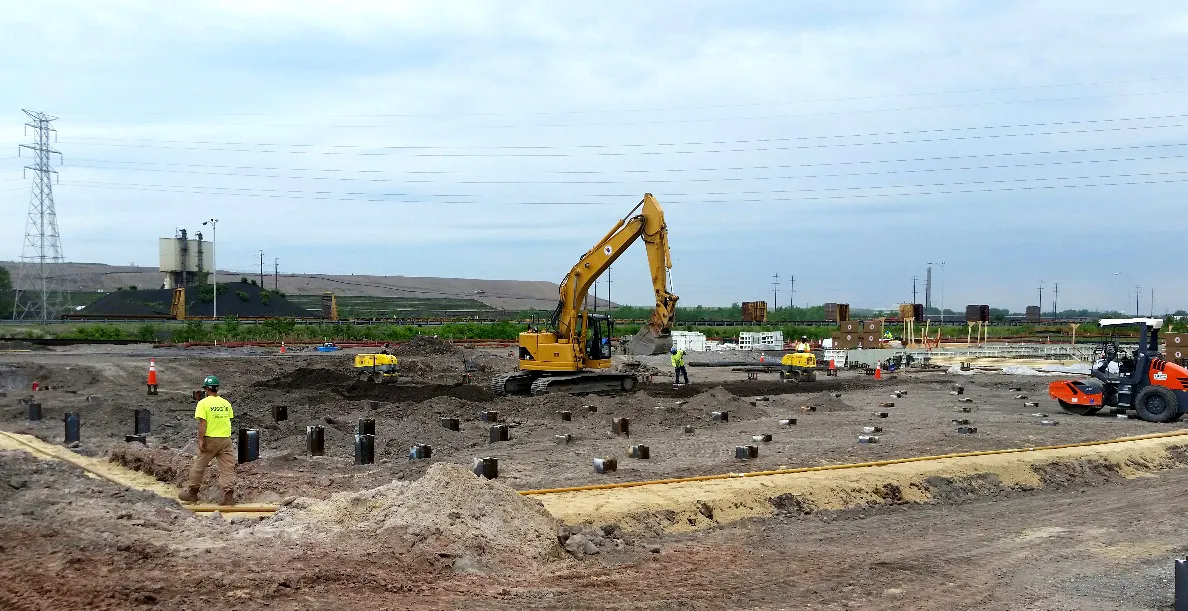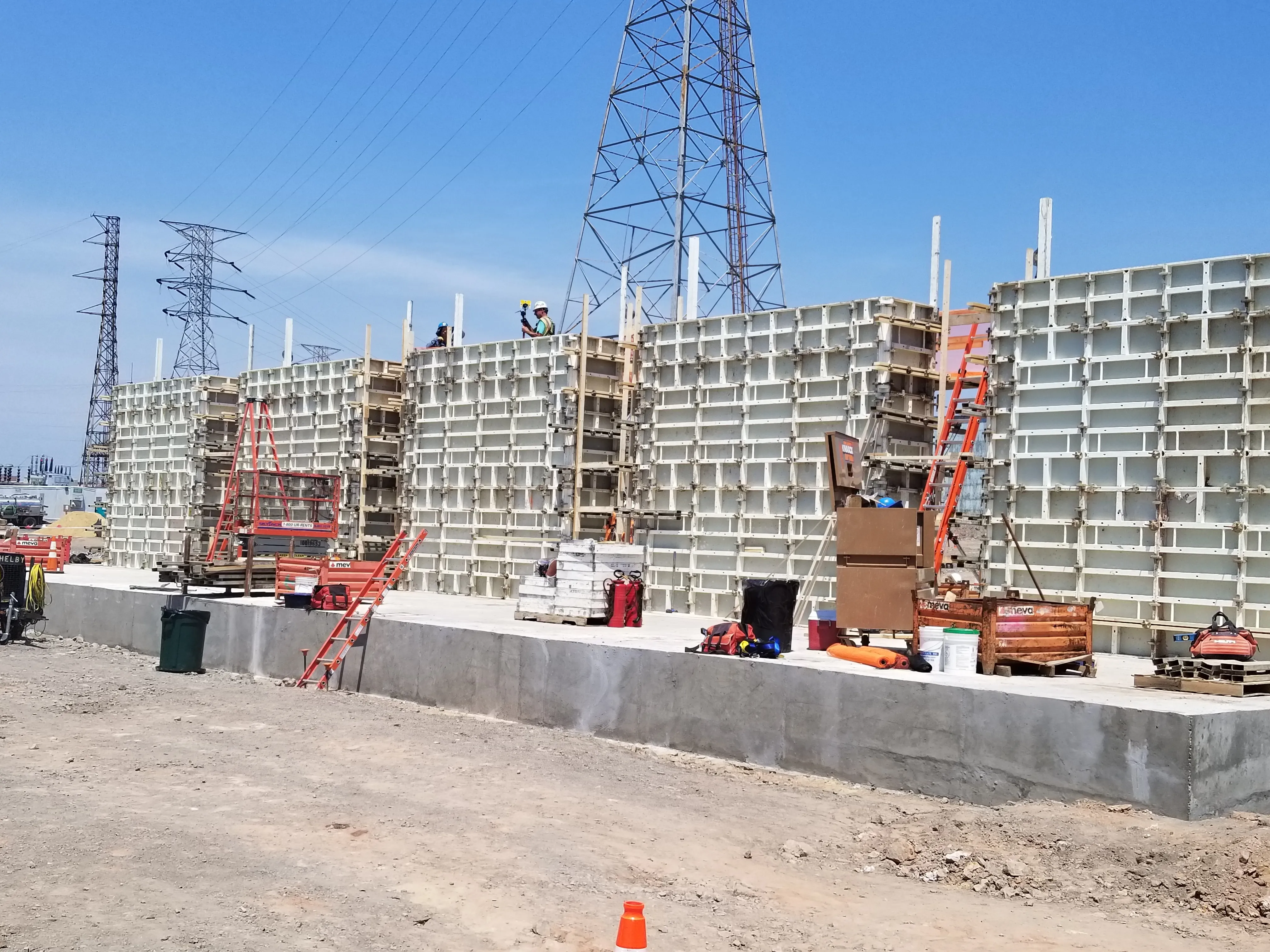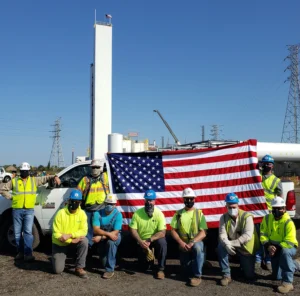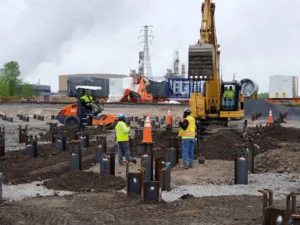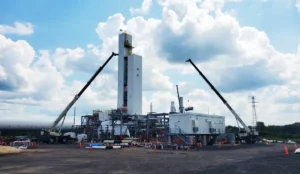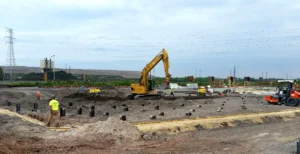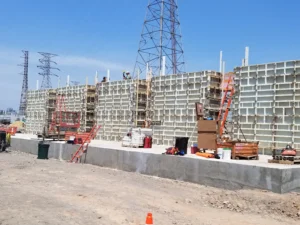Air Separation Unit Project
Located in Pennsylvania
- Capability
- Distributed Power & Data Centers
- Completion 2019–2021
Project Overview
In 2019-2021, in Pennsylvania, our team constructed an air separation unit by providing heavy civil, mechanical piping, and equipment setting services. The air separation unit serves many important industrial and commercial purposes, and produces oxygen, nitrogen, and argon for medical applications and hospital settings, chilling and freezing food products, metal fabrication, blanketing and purging, and combustion enhancement.
Project Overview
In 2019-2021, in Pennsylvania, our team constructed an air separation unit by providing heavy civil, mechanical piping, and equipment setting services. The air separation unit serves many important industrial and commercial purposes, and produces oxygen, nitrogen, and argon for medical applications and hospital settings, chilling and freezing food products, metal fabrication, blanketing and purging, and combustion enhancement.

